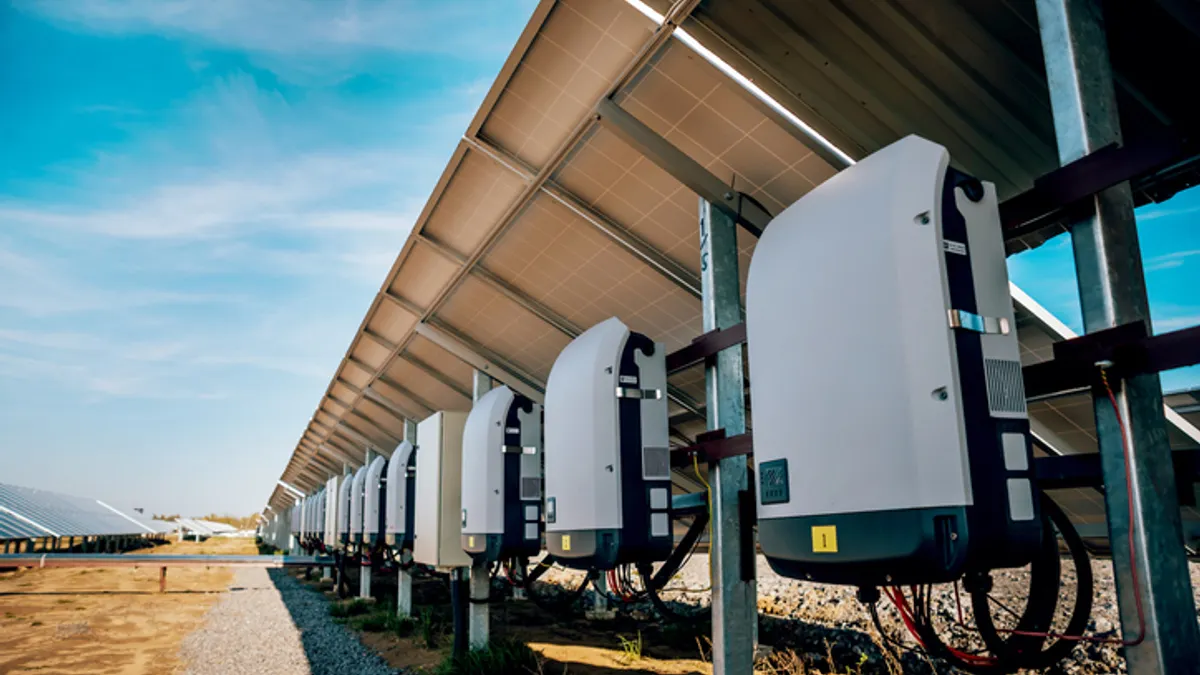Dive Brief:
- Texas lawmakers on Sunday approved $1 billion in annual incentives for generators to be available during times of grid stress. Experts say the program will likely begin in 2027 if Gov. Greg Abbott signs the measure.
- House Bill 1500 was a regular reauthorization of the Public Utility Commission of Texas, but lawmakers attached other energy measures in the final hours of the 2023 legislative session.
- The incentives are a limited implementation of the performance credit mechanism endorsed by the PUC in January. HB 1500 also requires regulators to implement firming requirements for generators in 2027 and allows battery storage resources to help meet those requirements.
Dive Insight:
It was a frenzied weekend in the Texas legislature and though the regular session ended Monday Abbott has already called lawmakers back for a special session to tackle unresolved issues.
HB 1500, known as the PUC sunset bill, was amended with programs to shore up grid reliability but opinions vary on how well it will accomplish that goal and at what price. The $1 billion cap on generator incentives will help protect consumers from dramatically higher bills, but advocates also lamented a lack of efficiency and demand response measures.
The Texas Public Policy Foundation called on Abbot to sign HB 1500 and said more work lies ahead including for the PUC to complete a cost allocation study.
“Ensuring a reliable Texas grid is not a one-time act but rather an ongoing process,” Brent Bennett, policy director for Life:Powered, an initiative of the Texas Public Policy Foundation, said in a statement.
“The long timeline for implementing these reforms makes it imperative that the Public Utility Commission finish the cost allocation study before the next legislative session and move quickly to develop standards to ensure all generators in the ERCOT market are providing the reliability that we need,” Bennett said.
The PUC earlier this year endorsed a performance credit mechanism as part of an overhaul of the state’s energy market. It requires authorization by lawmakers and some estimates put the PCM’s cost at $5.7 billion annually. Texas lawmakers declined to go that far and instead approved a limited version.
HB 1500 states the net cost to the Electric Reliability Council of Texas of the credits can not exceed $1 billion annually, “less the cost of any interim or bridge solutions that are lawfully implemented.”
“The Senate and House both deserve credit for protecting consumers from billions of dollars in increased power bills,” Stoic Energy President Doug Lewin wrote Tuesday.
The bill also directs the PUC to develop a dispatchable reliability reserve service, or DRRS, and firming requirements for new generators that can also be met with energy storage.
Generation owners and operators must be allowed to meet the performance requirements described by this subsection by supplementing or contracting with on-site or off-site resources, including battery energy storage resources, the bill says.
The ability of storage to compete for the PCM and DRRS “was a big victory,” Cyrus Reed, conservation director of the Sierra Club Lone Star Chapter, said in an email. The way the bill is written it “doesn’t look like demand response could qualify for either service,” though there is some chance for DRRS.
It’s unfortunate, he said, “because it would have spurred demand response and lowered the cost to consumers.”















